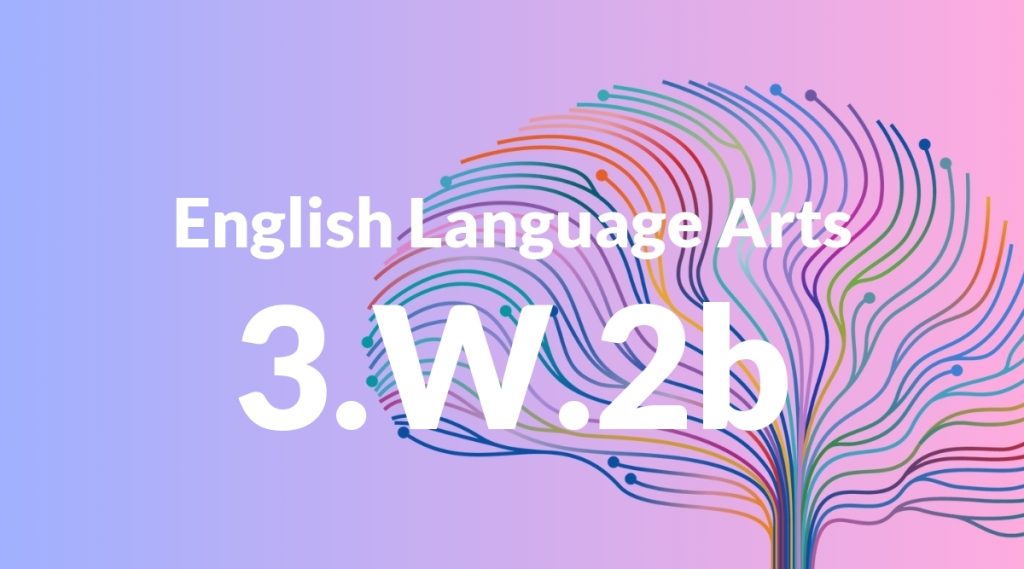Standard: 3.W.2b – Develop the topic with facts, definitions, and details.
Grade level: Grade 3
Subject: English Language Arts
Domain: Writing
Teacher Overview
This standard emphasizes the importance of developing a topic with relevant facts, definitions, and details. It is crucial for students to learn how to support their main ideas with concrete information, which is a key skill in writing across various genres. Students should be able to identify main ideas and supporting details in texts, write simple paragraphs, and understand basic sentence structure.
After mastering this standard, students will be able to organize information logically, use transitional phrases effectively, and enhance their writing with more complex details and varied sentence structures.
Common Misconception 1
A common misconception is that students may think listing random facts is enough to develop a topic. This is incorrect because the facts need to be relevant and connected to the main idea to provide a coherent and informative piece of writing.
Intervention 1
Use graphic organizers to help students categorize and select relevant facts that support their main idea. Model how to connect these facts logically.
Common Misconception 2
Another misconception is that students might believe definitions are unnecessary if the audience already knows the topic. This is incorrect because definitions help ensure clarity and understanding, especially when introducing new or complex terms.
Intervention 2
Provide examples of writing that include definitions and explain their importance. Encourage students to think about their audience and the need for clear communication.
Prerequisite Knowledge
Students should have basic sentence structure knowledge, understanding of main ideas and supporting details, and the ability to write simple paragraphs.
Subsequent Knowledge
Students will develop skills in organizing information logically, using transitional phrases, and enhancing their writing with more complex details and varied sentence structures.
Instructional Activities
- Create a fact file on a chosen topic with at least three supporting details.
- Write a short biography including key facts, definitions, and details about the person’s life.
- Compose a how-to guide with step-by-step instructions and necessary definitions.
- Describe a recent science experiment, including observations, results, and relevant facts.
- Draft a persuasive letter with supporting arguments and detailed explanations.




